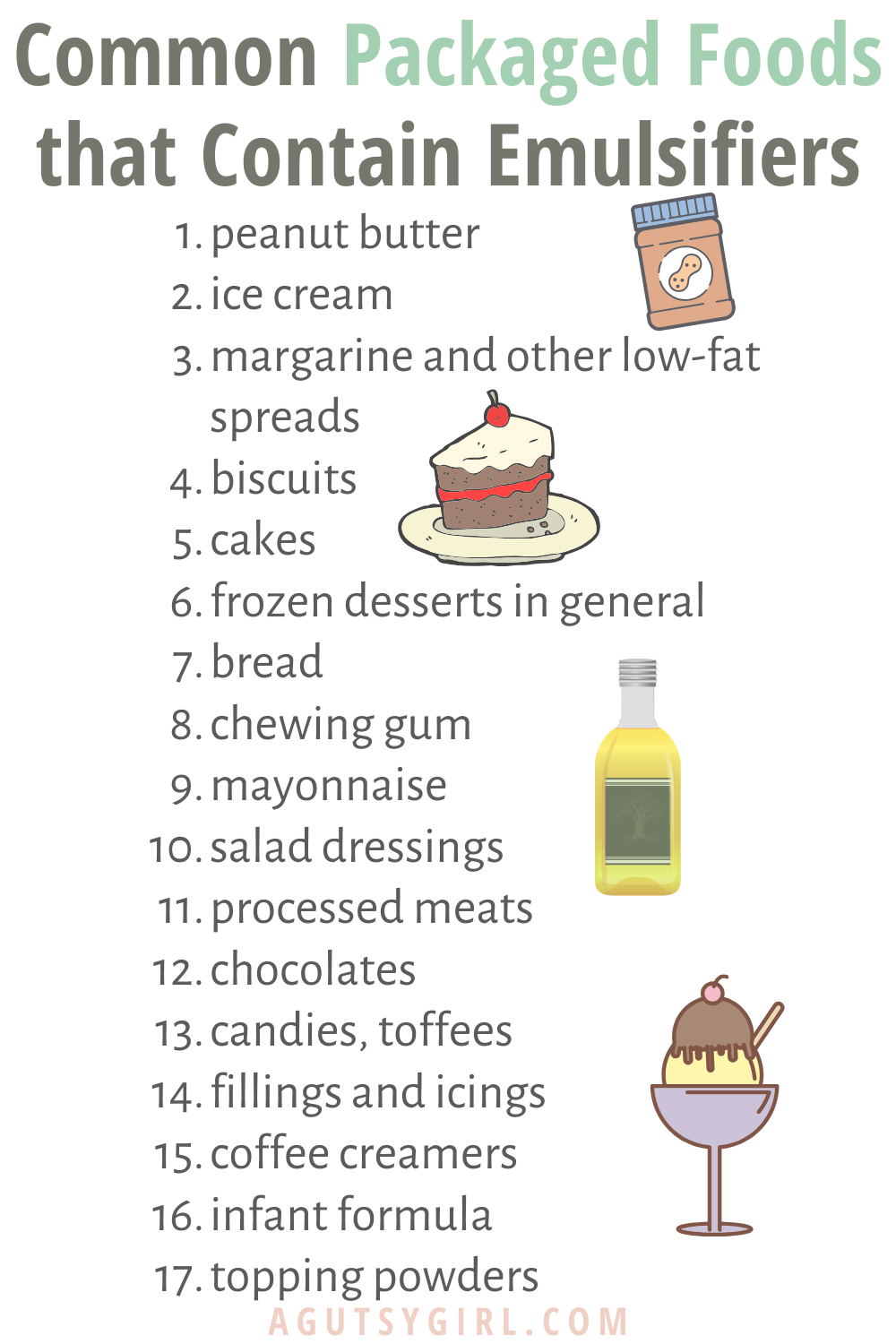Emulsifier In Food Safety: Facts You Can Trust
Wiki Article
Reveal the Benefits of Using an Emulsifier in Food for Boosted Culinary Experiences
Emulsifiers are usually ignored yet vital elements in culinary methods. They facilitate the mixing of disparate components, enhancing both flavor and structure. By making sure security, emulsifiers prevent the unattractive separation of blends. Their convenience spans various applications, from sauces to dressings. Recognizing their function can bring about considerable improvements in food top quality and presentation. What particular benefits do emulsifiers use that can transform everyday recipes right into remarkable cooking experiences?Comprehending Emulsifiers: What They Are and Just how They Work
Emulsifiers play a vital function in the food sector, serving as representatives that help with the blending of water and oil, 2 substances that generally do not blend. These compounds possess both hydrophilic (water-attracting) and hydrophobic (oil-attracting) residential or commercial properties, permitting them to maintain mixtures by reducing the surface stress between both phases. Typical emulsifiers include lecithin, mono- and diglycerides, and specific healthy proteins.When contributed to food, emulsifiers develop a secure emulsion, avoiding splitting up and making sure an uniform structure - Emulsifier In Food. They are important in numerous applications, varying from salad dressings and mayo to gelato and sauces. By maintaining the honesty of mixes, emulsifiers not only enhance the aesthetic allure of food however also enhance mouthfeel and uniformity. Their capacity to stabilize solutions makes them vital in modern-day food formulation, adding considerably to the high quality and shelf life of various items
The Role of Emulsifiers in Flavor Enhancement
While commonly overlooked, emulsifiers substantially add to flavor enhancement in foodstuff. They play a necessary function in improving the general preference experience by assuring that taste substances are equally distributed throughout a recipe. By maintaining emulsions, such as sauces or dressings, emulsifiers prevent the separation of oil and water, permitting tastes to blend together much more successfully. This uniform distribution not only intensifies the preference but also guarantees that each bite is regularly savory.Moreover, emulsifiers can enhance the perception of specific tastes, making them much more pronounced on the taste buds. They might communicate with specific active ingredients, helping to launch unpredictable taste substances that add to a recipe's fragrant profile. As a result, using emulsifiers can substantially raise the culinary experience, changing simple dishes right into complex and delightful taste journeys. Their subtle yet impactful duty in flavor improvement should not be underestimated in the art of cooking.
Emulsifiers and Structure: Creating Creamy and Velvety Cuisines
The impact of emulsifiers extends beyond flavor enhancement to the domain of texture, where they contribute in developing velvety and creamy recipes. By helping with the consistent circulation of fats and water, emulsifiers allow the development of secure solutions, resulting in an elegant mouthfeel. This is specifically obvious in items like mayo, sauces, and dressings, where a smooth, luscious uniformity is preferred.Emulsifiers such as lecithin and mono- and diglycerides work to reduce surface area stress in between ingredients, permitting an unified mix that improves the sensory experience. The velvety texture accomplished with emulsification can raise dishes, making them extra attractive and delightful. In addition, the ability to create a silky appearance enables chefs to include numerous components without compromising uniformity, leading to ingenious cooking productions. Essentially, emulsifiers play a vital duty in transforming ordinary meals right into amazing culinary experiences through texture improvement.
Security Issues: Just How Emulsifiers Prevent Splitting Up
An essential aspect of cooking emulsifiers is their capability to stop splitting up, making sure that items maintain their designated structure and appearance gradually. Emulsifiers function by maintaining mixtures of oil and water, which naturally often tend to divide as a result of differences in thickness and polarity. By lowering surface stress at the oil-water interface, emulsifiers facilitate image source the formation of steady emulsions, enabling a consistent circulation of ingredients.
Common Emulsifiers in Food Preparation and Their Applications
Recognizing the different emulsifiers frequently utilized in cooking reveals their significant functions in improving food texture and stability. Lecithin, originated from egg yolks or soybeans, is commonly employed in mayonnaise and salad dressings, offering a luscious uniformity. Mustard, also an emulsifier, help in supporting vinaigrettes while imparting taste.

Another popular emulsifier is xanthan gum tissue, often made use of in gluten-free baking and sauces for its thickening homes. Guar gum tissue offers a comparable purpose, boosting the texture of ice creams and dairy items.
Mono- and diglycerides, typically found in refined foods, aid boost service life and keep texture. Ultimately, casein, a milk healthy protein, is utilized in cheese-making and luscious sauces, adding to a smooth mouthfeel. Each of these emulsifiers plays an important duty in culinary applications, making certain desirable textures and protecting against separation in varied food.
Frequently Asked Concerns
Are Emulsifiers Safe for Individuals With Food Allergies?
Emulsifiers can be secure for individuals with food allergic reactions, depending on the specific emulsifier made use of. It is vital to identify the source of the emulsifier, as some might set off allergic reactions in sensitive individuals.
How Do Emulsifiers Impact the Nutritional Web Content of Food?
Emulsifiers can influence the nutritional content of food by improving nutrition absorption and boosting texture. Their presence might also weaken specific nutrients, depending on the food matrix, possibly changing overall nutritional value.Can Emulsifiers Be Utilized in Vegan Food Preparation?
Emulsifiers can be properly used in vegan cooking, supplying structure and security to dishes. Plant-based emulsifiers like lecithin, stemmed from soy or sunflower, assistance mix active ingredients, enhancing the overall top quality of vegan cooking creations.What Are the Environmental Effects of Emulsifier Manufacturing?
The environmental influences of emulsifier production usually include deforestation, water pollution, and high power consumption. Furthermore, some sources of emulsifiers can add to biodiversity loss, raising concerns regarding sustainability in food manufacturing methods.Exactly How Do Emulsifiers Compare to All-natural Thickeners in Food Preparation?
Emulsifiers provide smoother structures and boosted security contrasted to all-natural thickeners, which can give unique tastes - Emulsifier In Food. While emulsifiers boost mouthfeel and look, his explanation all-natural thickeners offer even more health and wellness advantages and can add to the dish's taste accountWhen included to food items, emulsifiers develop a stable solution, preventing splitting up and guaranteeing a consistent texture. While frequently ignored, emulsifiers significantly contribute to taste enhancement in food products. Understanding the numerous emulsifiers generally utilized in food preparation exposes their significant roles in enhancing food texture and stability. Emulsifiers can be safe for individuals with food allergies, depending on the specific emulsifier used. Emulsifiers can influence the nutritional material of food by enhancing nutrient absorption and boosting structure.
Report this wiki page